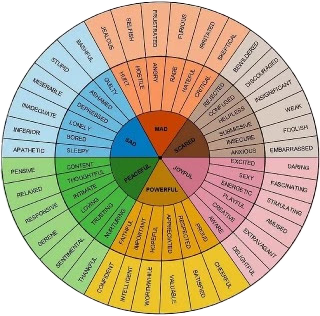Strategies to Augment Daily Routines

On September 8, I blogged about how to schedule or set a routine for home schooling. It was meant to help a family block out time periods. A very dry and practical framework.
This blog will offer ideas that are intended to be fun, creative and support at home learning. Yes, we all like routines and I can only imagine juggling home schooling with working at home must be exceptionally challenging. But we also have to make the daily ‘grind’ fun. Here are some suggestions:
Morning Meeting (Setting the Tone: The Kick off to the day)
In the classroom we start the day with the same routine, the morning circle. At home why start the day with a family meeting. How? Why not use breakfast as the first non-negotiable time that everyone uses to start off the day? You can signal the start of breakfast when everyone is expected to be at the table with songs, one, two and even more, (these could change weekly or be the same every day) Kids love to dance, this can be a dance jam before the day starts! This gives everyone some wiggle room to arrive but the rule being once the songs are finished everyone is expected to be seated at the table.
Some song suggestions: I like using YouTube videos with the printed lyrics as it reinforces with little ones that songs have words that are read, moreover, it becomes an exercise in reading.
You Can Count on Me by Bruno Mars
This Little Light of Mine
We Are Family
Happy
Or take a look at this list:
During your family meeting, reinforce the house learning rules ( remember make them simple) and remind everyone one what that looks like, discuss the learning themes ideas you hope to investigate through the day, table special requests from kids and parents, goal for the day and either daily or weekly focus on a social skill that everyone can try to improve (ie. listening, sharing, giving ‘I” messages, etc), something(s) that we can be grateful and mindful of that day. Talk about the date, and what is the weather going to be like. The preparation of breakfast can be something everyone can help with from pouring cereal, making toast, cutting up fruit and of course the clean-up. Before actually setting to starting the ‘work’ routine you might like to take a walk of challenge each other in a simple short exercise routine.
Designated Work or School Area of the Home:
When working from home boundaries can easily get crossed, which can be a source of aggravation with sound levels, interruptions and organization. I would highly recommend that you decide what is the area of the home that is the parent work area and another for the children. Yes, I would keep your space separate, even if close, as it reinforces the need for boundaries especially if deep concentration or no interruptions are needed. If your space is tight it could be the kitchen table but let everyone know that when it is the work week, during certain hours, that table or space is the designated work area for either the kids or parents. If you need to use a common area of the home, use labelled bins (maybe colour specific?) for the subjects which hold resources, books, creation materials, unfinished work, paper etc. that you might need. When that bin is on that table or in that area it means that ‘work is in progress’. You could even have ‘fun’ dramatic hats that everyone one could use to set a signal, like a listening hat, or talking stick if taking turns is an issue, a sandwich board sign that says shhh, genius at work, or how about hold up colour dot signs on a stick, (Red- Shhh no talking this could take awhile come back, Yellow – Wait- Please be patience I’ll be with you soon, or Green – It’s okay to interrupt…what’s your question.
Lunch: Fun personal space time
Seeing that breakfast and dinner are shared and nonnegotiable this might be a time that you prefer to have a prepared lunch for your child that they can eat at their leisure in front of their favourite show. Seeing that home and school are shared space it might be nice for the children to have a segment in the middle of the day that is free from structure and that they can control with their favourite interests.
Late Afternoon Outdoor Free Time:
Play a game outside. Either play with the kids, suggest a game they can play by themselves or let them organize themselves and let the adult supervise at a distance.
Dinner:
Dinner is sacred sharing time. Set the table and teach table manners; it’s a time for us to be at our best. A time to give thanks for the blessings of the day, ask for forgiveness, celebrate accomplishments, reflect on failures, ask for advice and above all learning from others by actively listening/questioning. Chat about family values and hard decisions we might had had to make. It’s a platform where everyone should feel heard.
Years ago, a colleague of mine who had five children shared that dinner was a very special time of the day for everyone to come together and share their day experiences. There was no eating in front of the TV no running around to different activities and if there were activities, time was made before or after to share in a meal, face to face with real conversation. Up until I was about grade three, we would have set family meals daily and on Sundays often it was the special early dinner. As we grew older, and as my father spent more time at work as we headed into our teen years, dinner was often in front of the television. I look back and think, it’s too bad as those teen years were probably critical communication times that were lost.
Moral of the story: whoever you are living with make dinner time a special sharing time. It’s a great time to introduce different genres of background music and new foods. A friend would make one meal a week that would be of a particular cultural theme (music, food, stories and movies).
Weekly or Monthly Celebrations:
It’s always fun to have something to look forward to whether a take out meal, movie/popcorn might, family dance party, going out for dinner, having friends/family ( in our bubble) over to an easy meal. These can celebrate an accomplishment or centre around a sporting event or theme. I just noted dear friends just celebrated football Sunday with a couple of close pals. Work around holiday themes and set traditions that bind people together. If you think corny/shmaltzy who cares! Kids love celebrating and sharing.

Dazzle’s Challenge:
- Whether you children are at school or they are homeschooled remember to stop, listen and have fun! Every week plan a fun thing to do, like play Scrabble eating pizza. Something to change your routine and get you out of the daily stress juggle.
Quick Take Away Links:
- Celebrations and Traditions:
- Dinnertime:
- https://www.stanfordchildrens.org/en/topic/default?id=why-the-family-meal-is-important-1-701
- https://www.washingtonpost.com/posteverything/wp/2015/01/12/the-most-important-thing-you-can-do-with-your-kids-eat-dinner-with-them/
- https://www.foodnetwork.com/healthyeats/2012/01/the-importance-of-family-dinner
- Music:
- A focus on classical music – A Year of Wonder
- https://www.goodreads.com/book/show/35405026-year-of-wonder
- https://www.wqxr.org/story/20-classical-music-selections-enhance-your-cooking-experience/
- https://www.musictherapykids.com/12foodthemedmusicstrategies/
- https://www.songsforteaching.com/diversitymulticulturalism.htm
- https://multiculturalkidblogs.com/2018/07/23/world-music-for-kids-multilingual/
- Food and Culture
Strategies to Augment Daily Routines
On September 8, I blogged about how to schedule or set a routine for home schooling. It was meant to help a family block out time periods. A very dry and practical framework.
This blog will offer ideas that are intended to be fun, creative and support at home learning. Yes, we all like routines and I can only imagine juggling home schooling with working at home must be exceptionally challenging. But we also have to make the daily ‘grind’ fun. Here are some suggestions:
Morning Meeting (Setting the Tone: The Kick off to the day)
In the classroom we start the day with the same routine, the morning circle. At home why start the day with a family meeting. How? Why not use breakfast as the first non-negotiable time that everyone uses to start off the day? You can signal the start of breakfast when everyone is expected to be at the table with songs, one, two and even more, (these could change weekly or be the same every day) Kids love to dance, this can be a dance jam before the day starts! This gives everyone some wiggle room to arrive but the rule being once the songs are finished everyone is expected to be seated at the table.
Some song suggestions: I like using YouTube videos with the printed lyrics as it reinforces with little ones that songs have words that are read, moreover, it becomes an exercise in reading.

You Can Count on Me by Bruno Mars
This Little Light of Mine
We Are Family
Happy
Or take a look at this list:

During your family meeting, reinforce the house learning rules ( remember make them simple) and remind everyone one what that looks like, discuss the learning themes ideas you hope to investigate through the day, table special requests from kids and parents, goal for the day and either daily or weekly focus on a social skill that everyone can try to improve (ie. listening, sharing, giving ‘I” messages, etc), something(s) that we can be grateful and mindful of that day. Talk about the date, and what is the weather going to be like. The preparation of breakfast can be something everyone can help with from pouring cereal, making toast, cutting up fruit and of course the clean-up. Before actually setting to starting the ‘work’ routine you might like to take a walk of challenge each other in a simple short exercise routine.
Designated Work or School Area of the Home:
When working from home boundaries can easily get crossed, which can be a source of aggravation with sound levels, interruptions and organization. I would highly recommend that you decide what is the area of the home that is the parent work area and another for the children. Yes, I would keep your space separate, even if close, as it reinforces the need for boundaries especially if deep concentration or no interruptions are needed. If your space is tight it could be the kitchen table but let everyone know that when it is the work week, during certain hours, that table or space is the designated work area for either the kids or parents. If you need to use a common area of the home, use labelled bins (maybe colour specific?) for the subjects which hold resources, books, creation materials, unfinished work, paper etc. that you might need. When that bin is on that table or in that area it means that ‘work is in progress’. You could even have ‘fun’ dramatic hats that everyone one could use to set a signal, like a listening hat, or talking stick if taking turns is an issue, a sandwich board sign that says shhh, genius at work, or how about hold up colour dot signs on a stick, (Red- Shhh no talking this could take awhile come back, Yellow – Wait- Please be patience I’ll be with you soon, or Green – It’s okay to interrupt…what’s your question.
Lunch: Fun personal space time
Seeing that breakfast and dinner are shared and nonnegotiable this might be a time that you prefer to have a prepared lunch for your child that they can eat at their leisure in front of their favourite show. Seeing that home and school are shared space it might be nice for the children to have a segment in the middle of the day that is free from structure and that they can control with their favourite interests.
Late Afternoon Outdoor Free Time:
Play a game outside. Either play with the kids, suggest a game they can play by themselves or let them organize themselves and let the adult supervise at a distance.
Dinner:
Dinner is sacred sharing time. Set the table and teach table manners; it’s a time for us to be at our best. A time to give thanks for the blessings of the day, ask for forgiveness, celebrate accomplishments, reflect on failures, ask for advice and above all learning from others by actively listening/questioning. Chat about family values and hard decisions we might had had to make. It’s a platform where everyone should feel heard.
Years ago, a colleague of mine who had five children shared that dinner was a very special time of the day for everyone to come together and share their day experiences. There was no eating in front of the TV no running around to different activities and if there were activities, time was made before or after to share in a meal, face to face with real conversation. Up until I was about grade three, we would have set family meals daily and on Sundays often it was the special early dinner. As we grew older, and as my father spent more time at work as we headed into our teen years, dinner was often in front of the television. I look back and think, it’s too bad as those teen years were probably critical communication times that were lost.
Moral of the story: whoever you are living with make dinner time a special sharing time. It’s a great time to introduce different genres of background music and new foods. A friend would make one meal a week that would be of a particular cultural theme (music, food, stories and movies).
Weekly or Monthly Celebrations:
It’s always fun to have something to look forward to whether a take out meal, movie/popcorn might, family dance party, going out for dinner, having friends/family ( in our bubble) over to an easy meal. These can celebrate an accomplishment or centre around a sporting event or theme. I just noted dear friends just celebrated football Sunday with a couple of close pals. Work around holiday themes and set traditions that bind people together. If you think corny/shmaltzy who cares! Kids love celebrating and sharing.


Dazzle’s Challenge:
- Whether you children are at school or they are homeschooled remember to stop, listen and have fun! Every week plan a fun thing to do, like play Scrabble eating pizza. Something to change your routine and get you out of the daily stress juggle.
Quick Take Away Links:
- Celebrations and Traditions:
- Dinnertime:
- https://www.stanfordchildrens.org/en/topic/default?id=why-the-family-meal-is-important-1-701
- https://www.washingtonpost.com/posteverything/wp/2015/01/12/the-most-important-thing-you-can-do-with-your-kids-eat-dinner-with-them/
- https://www.foodnetwork.com/healthyeats/2012/01/the-importance-of-family-dinner
- Music:
- A focus on classical music – A Year of Wonder
- https://www.goodreads.com/book/show/35405026-year-of-wonder
- https://www.wqxr.org/story/20-classical-music-selections-enhance-your-cooking-experience/
- https://www.musictherapykids.com/12foodthemedmusicstrategies/
- https://www.songsforteaching.com/diversitymulticulturalism.htm
- https://multiculturalkidblogs.com/2018/07/23/world-music-for-kids-multilingual/
- Food and Culture






